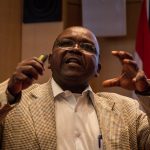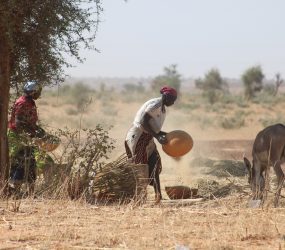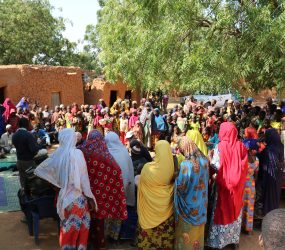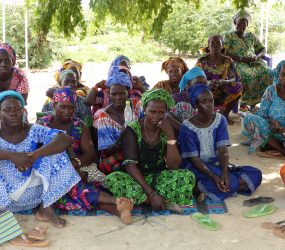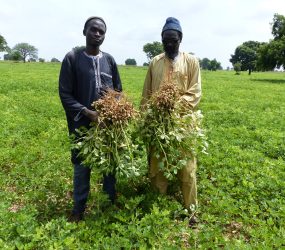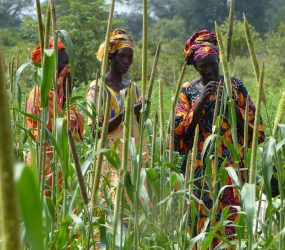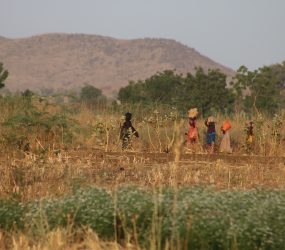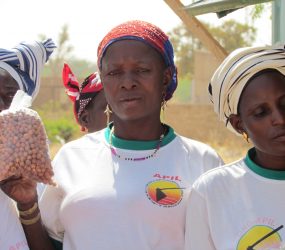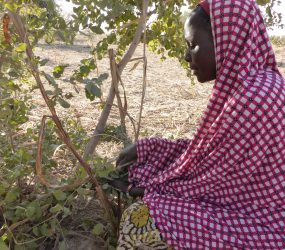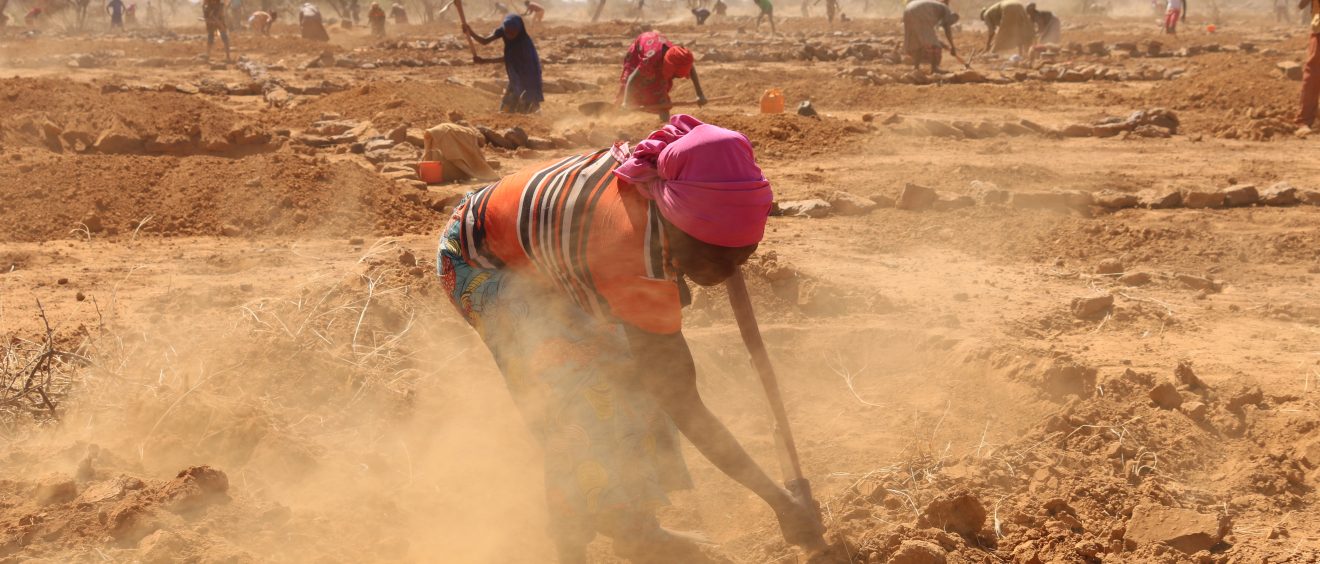
Communities regreen the Sahel
There is no changing the fact that the Sahel is very hot, very sunny and very dry. But even as climate change intensifies these challenging conditions, the Sahel need not become a desert. Unsustainable agricultural practices and overgrazing are among the main factors causing land degradation in the Sahel, which is threatening the lives and livelihoods of millions of people. Fortunately, organisations like CRESA in Niger – a long-term partner of Both ENDS – have shown that with the right approach, desertification of the Sahel can be reversed.
Both ENDS is supporting an ambitious ten-year collaboration involving CRESA and an array of partners in Niger, Senegal and Burkina Faso to ‘regreen’ the Sahel. Local communities have the leading role to play in the programme, which focuses on Farmer Managed Natural Regeneration (FMNR), a low-tech, low-cost method of accelerating revival of natural vegetation and sustainable food production. In contrast to typical reforestation methods, FMNR focuses on nurturing and protecting spontaneous growth of native trees and shrubs, using pruning techniques that allow them to grow faster. The regenerated trees and shrubs are integrated into farmland and grazing pastures. They help improve soil fertility and increase its water holding capacity, while also providing shade, fruit, fodder, timber and medicinal ingredients.
GROWING CONSORTIUM OF PARTNERS
By the end of 2018, the first full year of the programme, the three Sahel-based coordinating organisations – CRESA in Niger, SPONG in Burkina Faso, and IED Afrique in Senegal – had identified other partners and, together with Both ENDS, set-up a solid consortium of 19 organisations. The partners are intentionally diverse, covering different geographic areas or specialising in a particular aspect of the programme, such as community mobilisation, market development, research, lobbying and advocacy. They also vary in their approach to the implementation and adoption of Farmer Managed Natural Regeneration, as different soils and social contexts require different approaches.
During the year, Both ENDS’s partners undertook a mapping of current FMNR methods across the three countries and established country baselines. They also identified the particular strengths, skills and knowledge of each organisation – key for building and strengthening the collective effort to regreen 200,000 hectares of the Sahel, one of the programme’s main goals. But the programme’s ambitions are bigger: the consortium hopes to inspire new policies, laws and funding to support Farmer Managed Natural Regeneration on a wider scale.
SUSTAINABLE CHANGE NEEDS TIME
A key feature of the programme is its long-term horizon. This is critical, as partners insist that the biggest challenge to up-scaling Farmer Managed Natural Regeneration is the frequent rupture in funding. It can take five to seven years for farmers to notice the benefits of FMNR and the full regeneration of native trees takes even longer.
Policy change is also a slow-going process. The programme has been designed to allow enough time to gather the evidence needed to convince governments and funders that FMNR is a viable way to ensure food security, and increase resilience of livelihoods and biodiversity in the Sahel. In 2018, observatories and community-based monitoring systems were established in three different climatological zones in each of the three countries. Both ENDS has put the issue of women’s participation on the agenda, which has helped to inspire inclusion of women in the monitoring bodies and the practice of FMNR.
With a bird’s eye view of the whole programme, Both ENDS plays a facilitating and connecting role, making sure that partners are making use of every opportunity to learn from each other and enhance the programme’s effectiveness. We are also connecting partners to global networks like Drynet, as well as laying the groundwork to position the programme as a candidate for support from important funders, such as the Green Climate Fund.
How we work: Working with partners
Our mission is to strengthen civil society to gain decisive influence on the use of nature and the environment, thus contributing to societies that stay within our planetary boundaries and respect all human rights. Crucial to our success are strong partnerships with diverse organisations, including civil society organisations, community-based organisations, non-governmental organisations (NGOs) and research institutions, especially those in the Global South. We build partnerships through an organic process that begins with getting to know each other; recognising commonalities in our thematic work, strategies and approaches; identifying complementary needs; and of course fruitful collaboration on specific work. As in the case of the Communities Regreen the Sahel programme, Both ENDS often connects with new partners through long-standing partners, like CRESA, who know the landscape of their country and region better than we ever could. A small team manages Both ENDS’s cooperation with Southern partners to ensure that partners’ realities, points of view and needs are reflected in all of Both ENDS’ strategic choices.
Visit our website to find a full list of partner organisations and all the networks we take part in.

